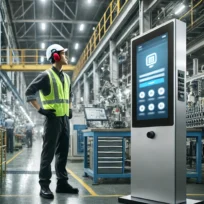The COVID-19 pandemic has presented most organizations with no option but to adopt work from home (WFH) mechanisms. However, the new-normal is inconsiderate of the fact that many employees are first-timers in WFH environments.
The freedom associated with WFH also comes with its risks that present itself in various ways. Indeed, chief among these, a lot of data security issues to institutions with inexperienced techies.
It is necessary to ensure that you have insurance and minimize #WFHBlunders. While protection seems like an afterthought, it can help to reduce risk and maximize operational efficiency. Further contents insurance in addition to the well known cyber insurance can make sure that the real world issues do not disrupt your life.
Here are a few security challenges that companies that have made the final decision to initiate WFH operations are forced to grapple with in this modern era.
Using Unprotected Networks
I remember a time when I had issues dealing with work information. I didn’t deliberately try to expose the information, but I didn’t take the right precautionary measures. Sometimes I would want to get the work done from a public location and forget to connect with a VPN service.
Needless to say, this did cause some issues with sensitive information not flowing to the right places. That was quite a struggle but that was a one-time event.
That is why I double-check to make sure that I’m using protected networks whenever I deal with sensitive work information.
Indeed, WFH employees could be unaware that the networks installed in their homes could face immense security challenges compared to the ones in their offices unless they are tech-savvy individuals. In particular, Wi-Fi users present their organizations with the worst data security challenges as they are easily compromised and accessible for public manipulations.
WFH environments should be incorporated with effective and high-quality VPNs and other secure communications tunnels to cushion personal and organizational data from phishing and other forms of attack. Similarly, a little education on the dangers of public Wi-Fi and handling sensitive data in sensitive networks could come in handy.
You would not want to put your career in dire straits because of a silly little mistake, ensure to practice great behaviors.
Storing Data and Documents in Non Corporate Devices
It would be best if you never assumed that your work laptops will be your sole work devices. While employers would appreciate that, it is easy to find yourself on one device and have to move to another one for one reason or another.
There’s a tendency that individuals will move sensitive office documents and data to their smart devices and home computers. Even though their personal devices could be installed with antivirus software, the security measures adopted for private computer systems could be undoubtedly a little less secure than what is found on business systems.
I had to learn to only stick with work devices and to keep it simple due to my own experience. It is best to avoid these issues and keep the whole experience secure.
Sharing More than You Should on Social Media Platforms
The internet never forgets. It could be difficult to claw back some pieces of information from social media platforms once you have shared them.
The WFH environment makes it very easy to intertwine between professionalism and a bit of social media as hours pass by. After all, this is the only avenue to interact with the mates you missed at work. However, there’s a possibility that the WFH employee, you, could knowingly or unknowingly share too much business data than you should when making use of social media.
Sharing Access Credentials Over Insecure Sources
The present-day organization has suffered physical separation more than ever before. Employees in WFH scenarios have to take turns accessing certain key documents and information needed for their day-to-day operations.
This makes it normal for team members to share sensitive credentials to reduce the associated operational bottlenecks. There are immense concerns when such credentials are shared through insecure and unapproved collaboration paths and devices. This explains the need for organizations with WFH processes to find secure collaboration tools.
Cyber and data breaches could be extremely costly to organizations whose employees have adopted WFH operations. However, ventures with these arrangements can take advantage of cyber liability insurance policies to cushion their operations just in case data breaches occur.
Cyber liability insurance policies are well-tailored to cover the organization and individual employees for damages they are legally liable to pay to the affected entities in the event of a breach.
While contents protection and insurance may be the last aspect on your mind when working from home, remember that #WFHBlunders are rampant. You do not want to get caught off-guard.




